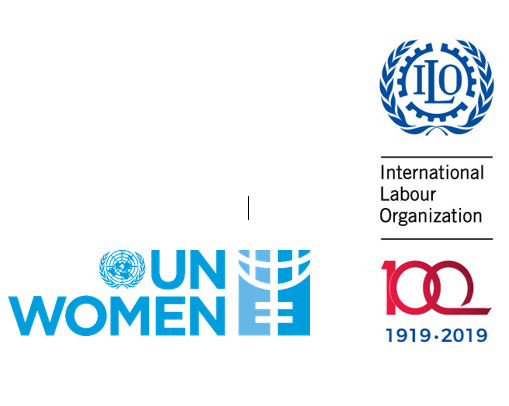Contained in the 2030 Agenda for Sustainable Development adopted in 2015, the Sustainable Development Goals (SDGs) set out 17 Goals which Governments committed to achieve by 2030, with a vision of shared prosperity and security (United Nations General Assembly, 2015). Goal 5 to achieve gender equality and empower all women and girls encompasses the elimination of all forms of violence against women and girls and Goal 8 aims at full and productive employment and decent work for all.[1] However, progress on gender equality, including decent work and freedom from violence, has been uneven (UN Women, 2017a).
Building on the SDGs, the UN Secretary General convened the UN High Level Panel on Women’s Economic Empowerment in 2016. It is formed by the heads of influential development and financial institutions in the world, such as the International Monetary Fund (IMF), the World Bank and the ILO, along with representatives from governments, business, workers’ organizations and civil society.
“Changing norms should be at the top of the 2030 Agenda to expand women’s economic opportunities. Everyone has a role to play in challenging adverse social and economic norms – girls, women, men and boys within families, communities, businesses, civil society organizations and government.” UN Secretary-General’s High-Level Panel on Women’s Economic Empowerment (UN Secretary-General’s High-Level Panel on Women’s Economic Empowerment, 2016, p.3)
The SDGs provide a perspective on the role of businesses in promoting human rights and sustainable development. This may include the promotion of decent work, equal pay and a working environment free from violence and harassment. Along these lines, some initiatives include, as an element of human rights performance evaluations, violence and harassment against women as set out, for example, under the Corporate Human Rights Benchmark.[2]
[1] Sustainable Development Goal 5 ‘Achieve gender equality and empower all women and girls’ includes the target 5.2 to ‘Eliminate all forms of violence against all women and girls in the public and private spheres, including trafficking and sexual and other types of exploitation.’
[2] Corporate Human Rights Benchmark 2019 Methodology. https://www.corporatebenchmark.org/sites/default/files/CHRB%202019%20Methodology%20AGAPEX%2016Jan19.pdf
